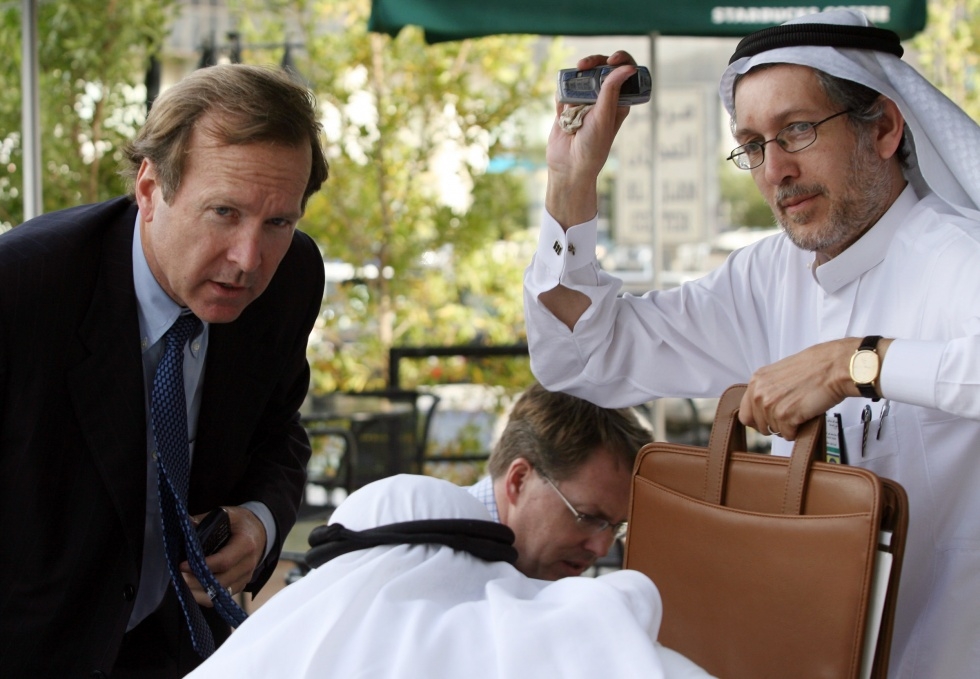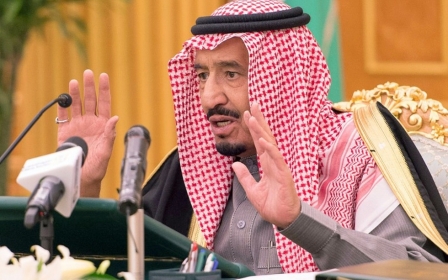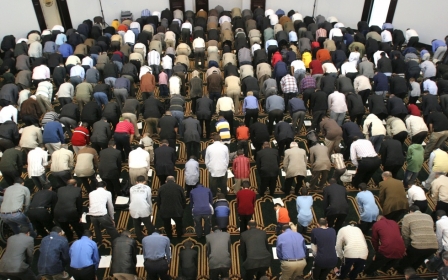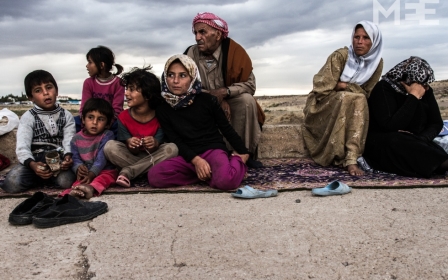Starbucks, McDonalds and Anti-Americanism in the Middle East

Jakarta is not only the capital of the world’s most populous Muslim country, Indonesia, it was also my home for a number of years. My apartment was located across the road from the Four Seasons, which is located across from a shopping mall that houses Saks Fifth Avenue, KFC, Fat Burger, and Starbucks. Indonesia isn’t the Middle East, but American franchises and brands are as ubiquitous in Riyadh, Abu Dhabi, Cairo, and Dubai as they are in Jakarta.
American chains, products, and brands are adored wherever you find Muslim majority populations, and this is particularly so in the Middle East.
“When a Jordanian goes into a Starbucks in Amman, or a Saudi visits a Pizza Hut in Riyadh, it’s not necessarily because the coffee or pizza are better than the local fare - often they are not,” writes James Zogby, founder and president of the Washington DC-based Arab American institute. “Arabs frequent these franchises because they think they are buying a piece of America and are part of the worldwide fascination with the way of life conveyed through these products.”
This begs the question: how deep does anti-American sentiment really run in the Muslim and Arab world?
American cable news and commentary is filled with American-centric pundits, who are often completely unfamiliar with the Middle East and Arab culture, which is why so many Americans have fallen spell to the mythical “clash of civilisations” narrative that suggests Arabs and Muslims hate America for its “freedoms, religion, culture and democracy”.
This “spell” is cast by those who stand to gain the most by perpetuating the bigoted falsehood that presents the Middle East as a monolithic entity that is hell-bent on conquering the West: neo-conservatives, Islamophobes, pro-Israel activists, and the military industrial complex. “Arabs hate us not because of what we do or who we are but because of what and who we are not: Arabs,” writes US neo-conservative writer Lee Smith. “Arabs are virulently anti-American, anti-Western, and anti-Semitic,” said Fox News’ Charles Krauthammer.
Instead of seeking out Americans to tell them what the peoples of the Middle East actually think, Americans should be paying closer attention to what it is Arabs are actually saying.
Six months after the September 11 attacks, the international polling firm, Zogby International conducted face-to-face interviews throughout five Arab nations - Egypt, Saudi Arabia, Lebanon, Kuwait, and the UAE - to measure how Arabs felt about “the many ways that America manifested itself in their region and touched their lives”.
The poll found that large majorities in all countries have a favourable and high regard for “many aspects of America’s broader cultural contributions”. Likewise, and contrary to the claims of those who peddle the “clash of civilisations” narrative, “majorities in all countries were also favourably inclined toward America’s democracy and freedom”.
More than eight out of 10 Arabs have a favourable opinion of American science and technology; and majorities in all countries have a positive view of American movies, television, and products.
All of this data hardly suggests Arabs have a predisposed hatred of America’s culture, society and people.
Where America’s overall favourability ranking sinks, however, is when Arabs are asked about US foreign policy in the Middle East, and, more specifically, the US handling of the Palestinian conflict.
Nearly nine out of 10 respondents in all five polled Arab nations gave a negative rating to the US handling of the Palestine-Israel conflict - “an issue viewed uniformly as “the most important” or “a very important” concern facing the Arab world today”. Of his polling Zogby has said that if he could “boil our polling to four words,” it would be: “It’s the policy, stupid”.
“If we need to have a headline claiming that Arabs hate something, then it would be more accurate to say, ‘Arabs Hate US Policy Toward Their Region,’” writes Zogby. “Though that probably won’t sell many newspapers.”
So instead of asking: “Why do they hate us?” Zogby argues that we should be asking: “How can we create a broader base of support across the Middle East to ensure that those who would do us harm are permanently isolated and defeated?” This way “we starve the resentments on which terrorists feed”.
Interestingly, the same poll was conducted two years later in 2004, shortly after the start of the Iraq war, and then again in 2009, shortly after the start of the Obama presidency.
In 2004, US favourable rankings dropped in all five polled countries, as Arabs broadly rejected US policy towards Iraq. Less than two percent of Saudis, Egyptians, and Moroccans had favourable opinion of America’s Iraq policy - and it was this conflict that also caused “once favourable perceptions of American people, products, and values” to erode. When respondents were asked, “What should America do to change its image in the Arab world,” nearly all focused on specific policy issues. “Stop killing Arabs,” “Stop supporting Israel,” and “Change your Middle East policy,” were among the most common responses.
The election of Obama in 2008 gave Arabs hope that America’s policy towards the Middle East would move in the opposite direction of the Bush administration. “The Bush years had taken a toll across the Middle East, and many Arabs were gripped by the sense that they had lost control of their futures. They had been forced to watch the unravelling in Iraq, the destructive neglect of Palestine and Lebanon, and the emboldening of extremists in Iran,” noted Zogby.
Obama’s promise to wind down the war in Iraq, end torture, and close Guantanamo resulted in 51 percent of respondents declaring they were hopeful about US policy in the Middle East. This optimism helped boost America’s favourable rankings back to near its 2002 levels.
Unfortunately, this initial optimism has waned. Six years after President Obama’s Cairo speech, Guantanamo remains open, the CIA torture report confirmed Arab suspicions, and Islamic State has emerged. All in all, Obama has been unable to effect any real positive change in the Middle East.
These Arab experiences are reflected in Zogby International’s 2014 poll. Majorities in Egypt believe Obama was too supportive of Hosni Mubarak; want no US military engagement in Syria; and believe the US is not even-handed in its approach to the Israeli-Palestinian conflict. “There is a sharp decline in confidence that the United States is committed to democracy across the Middle East,” notes the poll.
In most Arab countries, “attitudes towards the US have fallen back to where they were in 2009,” but a tick above where they were during the Bush-era lows.
Morocco is representative of this trend. In 2002, 38 percent had an overall favourable rating of America. This overall rating fell to just 11 percent in 2004 (post-Iraq invasion), and then skyrocketed to 55 percent in 2009 (post-Obama election). But the realities of the past six years have seen Moroccan opinion of the US to plummet again to below 30 percent.
This shift typifies shifting attitudes across the Middle East during this period of time, which further not only underscores how closely tied US foreign policy in the region is tied to Arab attitudes toward America, but also demystifies the American neo-conservative, pro-Israel assertion of the “eternally angry Arab”.
In this light, one can measure how great a setback to Arab-American relations is last month’s US blocking off the Palestinian statehood bid. It was only the US’s eternal ally, Australia that saved the US from the embarrassment of unilateral opposition. These polls make it abundantly clear that it is America’s refusal to deal with the Palestinian-Israeli conflict in an even-handed manner that has the greatest negative effect on Arab attitudes towards the US.
“Our polling shows that Arabs want the West to apply a consistent approach in dealing with bad behaviour by Israelis and Palestinians,” notes Zogby. “This does not mean abandoning Israel, but it does mean insisting on serious negotiations, applying balanced pressure on both sides, and coupling our firm stance against Palestinian violence with concrete assurances to defend Palestinians against further loss of land and rights.”
Solving the conflict will allow the US to boost Arab favourable attitudes, which will build much needed support from its Arab allies, which will help provide the US and Arab countries the space and legitimacy to isolate and defeat extremism and terrorism.
- CJ Werleman is an opinion writer for Salon, Alternet, and the author of Crucifying America, and God Hates You. Hate Him Back. Follow him on twitter: @cjwerleman
The views expressed in this article belong to the author and do not necessarily reflect the editorial policy of Middle East Eye.
Photo: Saudi men have coffee with two US citizens at a US coffee chain Starbucks in the Saudi capital Riyadh (AFP)
New MEE newsletter: Jerusalem Dispatch
Sign up to get the latest insights and analysis on Israel-Palestine, alongside Turkey Unpacked and other MEE newsletters
Middle East Eye delivers independent and unrivalled coverage and analysis of the Middle East, North Africa and beyond. To learn more about republishing this content and the associated fees, please fill out this form. More about MEE can be found here.





